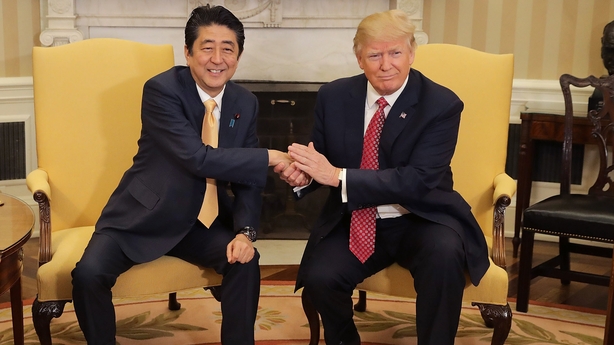Fresh from a legal setback to his travel ban, US President Donald Trump is considering signing a new executive order on immigration and is not planning to escalate the dispute over an earlier travel ban to the US Supreme Court, according to media reports.
Mr Trump's executive order banning entry to the United States by refugees and citizens of seven Muslim-majority countries was put on hold by a federal judge in Seattle last week, and that suspension was upheld by an appeals court in San Francisco yesterday.
MSNBC reported today that a senior official said the Trump administration will not ask the US Supreme Court to reconsider the ruling by the federal appeals court. The administration could still ask a larger panel of judges of the appeals court to reconsider the case.
The Associated Press reported that Mr Trump said he is considering signing a new executive order.
The White House is not ruling out the possibility of rewriting Mr Trump's 27 January order in light of the court actions, an administration official said.
Mr Trump's order, which he has called a national security measure to head off attacks by Islamist militants, barred people from Iran, Iraq, Libya, Somalia, Sudan, Syria and Yemen from entering for 90 days and all refugees for 120 days, except refugees from Syria, who were banned indefinitely.
We need your consent to load this rte-player contentWe use rte-player to manage extra content that can set cookies on your device and collect data about your activity. Please review their details and accept them to load the content.Manage Preferences
Earlier, Mr Trump denounced as "disgraceful" the decision by the appeal court to block his order barring US entry to refugees and nationals from seven predominantly Muslim countries.
Speaking at a joint White House news conference with Japanese Prime Minister Shinzo Abe, Mr Trump said: "We'll be doing something very rapidly having to do with additional security for our country. You'll be seeing that sometime next week."
Mr Trump has said the alliance between the United States and Japan is a cornerstone of regional peace and stability, edging away from campaign pledges to force Tokyo to pay more for the US security umbrella.
Mr Trump and Mr Abe began two days of talks with a hug as Mr Abe entered the White House and more handshakes and smiles in the Oval Office.
They were to depart later for Palm Beach, Florida, for a weekend stay at Mr Trump's Mar-a-Lago retreat with their wives.
At a joint news conference with Mr Abe, the US President avoided repeating harsh campaign rhetoric that accused Japan of taking advantage of US security aid and stealing American jobs.
He said: "We are committed to the security of Japan and all areas under its administrative control and to further strengthening our very crucial alliance.
"The bond between our two nations and the friendship between our two peoples runs very, very deep. This administration is committed to bringing those ties even closer."

The statement amounted to a victory for Japan's Prime Minister, who came to Washington wanting to develop a sense of trust and friendship with Mr Trump, and send a message that the decades-old alliance is unshakeable in the face of a rising China.
Meanwhile, Mr Trump described his telephone talks with his Chinese counterpart Xi Jinping were "very warm," while he reassured Japan that improved US-Chinese ties were not a threat to Tokyo.
The US President said: "We had a very, very good talk last night, and discussed a lot of subjects. It was a long talk.”
He said he and Mr Xi were "in the process of getting along very well, and I think it will be very much of a benefit to Japan."

